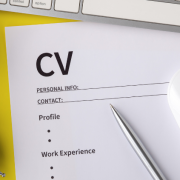Should You Accept Counteroffers?
We can’t lie, receiving a counteroffer feels good. Our sense of being wanted and appreciated can be heightened at that moment. With your resignation letter, you’ve received an offer from your employer, perhaps for more money, better benefits or a promoted position. It’s easy to get wrapped up in the excitement of this counteroffer, but when you stop and think about it, is that really what you want?
As expert recruiters, we’ve seen this dilemma play out in our candidates’ lives, in real-time, many times. The decision is ultimately your own. But first, read this article, and if nothing else, it will give you some food for thought on what the best choice is going to be for you.
Reasons for Accepting Counteroffers
It’s all well and good to state that “money isn’t everything”. However, for so many of us, money is one of the most important factors we consider when it comes to our careers. Especially in the current climate and the shared experience we have lived through for the past 3 years, there is no denying that money, and lack of it, contributes to daily stress and worry. So, is there any surprise that many people accept a counteroffer when it guarantees a pay raise? That is just one reason why employees choose to stay with their current company. Let’s take a look at some more of them.
Fear
Fear plays a massive role in our decision-making. The fear of the new role not working out, fear of the unknown in general. The thing about fear is that, more often than not, it lies to us. Robin S Sharma, best-selling author of “The Monk Who Sold His Ferrari” said: Your excuses are nothing more than the lies your fears have sold you.
So when figuring out what choice to make, think about what is holding you back and if there is any merit to the narrative you’re telling yourself.
Comfort and Familiarity
It’s science. As humans, we seek familiarity. But why? An article written by Shanelle Mullin gives great insight; “From an evolutionary perspective, it makes sense that familiarity leads to comfort. Something you’re familiar with is less likely to hurt you. Or, at least, hurt you in an unexpected way. We don’t want to risk the unfamiliar.” So, is it any wonder that we can be tempted to stick to our old ways, even if in the long run, it isn’t what we want?
Avoid Being the Newbie
No one likes being the new person in the office and learning the ropes all over again. Different people, different atmosphere, different software, different milk in the staff fridge. Ok, the last one you could get over pretty quickly. But in all seriousness, of course, there is going to be a period of discomfort when starting a new role in a new company. However, don’t mistake discomfort for danger. Remember those lies your fear told you? Those feelings will only last a short time and before you know it, you will feel you belong.
The Reasons to Turn Down a Counteroffer
By now you might have guessed that we don’t consider accepting counteroffers to be the best choice… and with good reason. 80% of employees who choose to accept a counteroffer from their employer end up leaving the company anyway within the next 6 months. Eighty per cent. We cannot deny from this staggering statistic that counteroffers don’t usually work. They don’t solve the problem and can lead to you missing amazing opportunities. Here are some of the main reasons why you might turn down a counteroffer.
Remember Why You Were Job Hunting in the First Place
You got caught up in the moment and started to seriously consider accepting your existing employer’s offer, that dangling carrot. Once you step back from the situation, you start to remember the reason you were seeking out another job in the first place. If the reason for leaving goes beyond your pay grade, then accepting the counteroffer won’t fix your motivations for leaving.
Money Isn’t The Most Important Thing
I know what we said but we also have to give our “counter” argument for why staying for just the money isn’t the best choice for your happiness. Thinking of this is going to feel like an internal tug of war. On one hand, you may have a family and mortgage to consider and the counteroffer sounds like it can give you some relief in the expenses of living. On the other hand, you are thinking of YOU and how your true peace and happiness cannot be found in a number. What we will say is; if you have the luxury of doing what is going to make you happy, then try not to be tempted by the figures and follow through with your decision to leave. Trust yourself to make the right decision.
It Took You Leaving to Be Appreciated
The counteroffer has you feeling fuzzy inside for a split second… but hang on, why are you only being valued now that you are leaving? The decision to accept a counteroffer may have a lasting impact on your relationship with your current employer. They may also wonder what provoked you to want to leave, affecting the level of trust and loyalty in that working relationship.
New Opportunities
Accepting a counteroffer effectively closes the door to new career opportunities. Think about your long-term career goals. Where do you want to be in 5 years? If you had been seeking a new position, it is unlikely that you see yourself in your current role. Don’t be afraid to go after what you want. Your happiness depends on it.
Get Started with RecruitmentPlus
With RecruitmentPlus, you have not only an expert recruiter on your side but a person who will take on board all of your needs and desires. Since every candidate we have ever worked with has been unique, so is the service they have received. To get started with us, follow the steps below:
Step One: Upload Your CV
Step Two: Call Us – Stillorgan: 01 2788610/ Dundalk: 042 9356910
Step Three: Search Live Jobs










